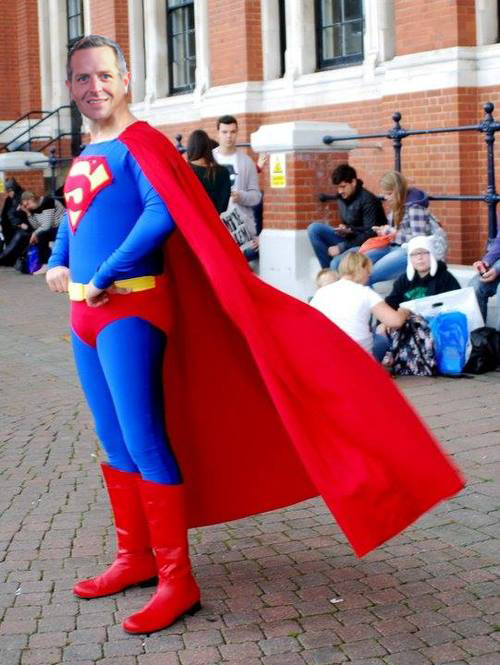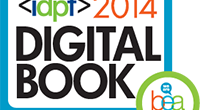
Hugh Howey is a self-published author who leveraged Kindle Direct Publishing to distribute his Silo Saga about a post-apocalyptic wasteland. They have sold over 300,000 copies in the US and have been optioned for a movie to be directed by Ridley Scott. You might say that Howey is a self-published professional author whot did well for himself. Lately, he has transcended from being a writer to perpetually standing on his virtual soapbox. Indie authors have elevated him to being a poster child for self-publishing and he is giving unrealistic expectations to writers who want to emulate his success.
Wool was one of the breakout success stories for self-publishing. It has been featured on the New York Times and USA Today bestseller lists, and was the number one bestseller on Amazon, where it was also named winner of Kindle Book Review’s Best Indie Book of 2012. He has signed international distribution deals with Random House to have the works translated into foreign languages.
Aside from the success of his books, Hugh is a non-stop promotional machine. Most of his blog posts are endlessly dissected throughout the media and his new Author Earnings website tracks how much some self-published authors are making. In a recent report he said, “Indie authors are outselling the Big Five. That’s the entire Big Five. Combined. Indie and small-press books account for half of the ebook sales in the most popular and bestselling genres on Amazon.”
Hugh is a whirlwind of interviews and Twitter chats that tend to make him accessible to almost anyone who asks. The more hype he builds, the more ebooks he sells. One blogger referred to him as a “patron saint of empowering authors”
But there is a darker side to being Hugh Howey, more than anyone realizes. Indie authors have elevated him to practically a religious figure of the self-publishing movement. He has become the poster child for any writer who has a dream of making it big. He is consistently cited by journalists, bloggers, and indie writers as being a stalwart vanguard of self-publishing and a mirrored reflection of everything indie writers aspire to be.
Recently Howey mentioned, “The key to making it as a writer is to write a lot, write great stories, publish them yourself, spend more time writing, study the industry, act like a pro, network, be nice, invest in yourself and your craft, and be patient. If you can do all of these things, you’ll earn some money. Maybe enough to pay a bill every month. Maybe enough to get out of debt. Maybe enough to quit your job. Thousands of writers are doing this, and we are welcoming all comers with open arms.” You can see by this quote that some of it makes sense. It is also apparent that he is feeding people dreams and wants people to self-publish more.
Howey also tends to make inflammatory remarks to drum up support for himself, his books, and self-publishers in general. “For a long time now, self-publishing has been dismissed as an act of vanity – mainly by frightened executives in publishing houses, who hold up terrible examples of self-published works and say ‘See? This is why we exist.'” You can see by this quote he is alluding that the traditional publishing industry is the evil empire, something self-publishers do not need. Quotes like this manage to rope in more writers who say, “I feel the same way.”
Mike Shatzkin, publishing expert and founder of The Idea Logical Company, called Howey out, saying he is “a much better author and self-promoter than he is a business analyst,” and warns authors his advice is potentially “toxic.”
Hugh consistently makes inflammatory remarks, trying to build resentment towards the traditionally published industry. Recently, he said, “When I was a kid, everybody wished their father owned a candy store.” Hugh’s advice for publishers is to eliminate things that annoy him (non-compete clauses, length-of-copyright licenses, New York City offices) and to lower prices, give away ebooks with hardcover purchases, and pay authors monthly.
His latest business inspiration — a call to arms suggesting to independent authors that they should just eschew traditional publishing or demand it pay them like indie publishing — is potentially much more toxic. Is he most interested in getting more authors self-publishing, or in organizing authors to demand better terms from publishers? Well both, as he is becoming a spiritual figurehead that indie writers with no voice can get behind. He is leveraging popular opinion to try and change the industry. The potential victims of this effort are the very authors he is trying to save. Likely, the outcome of this “revolution” is to widen the gap between self-publishing and traditional publishing. Instead of banging down walls, he is raising them up. Instead of building bridges he is arming them for detonation.
Michael Kozlowski is the editor-in-chief at Good e-Reader and has written about audiobooks and e-readers for the past fifteen years. Newspapers and websites such as the CBC, CNET, Engadget, Huffington Post and the New York Times have picked up his articles. He Lives in Vancouver, British Columbia, Canada.
